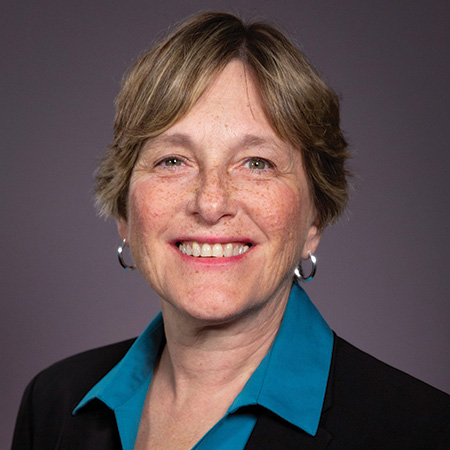Looking Toward the Future
PRESIDENT’S MESSAGE
I have always been a “lifelong learner,” whether in the science of food or gaining expertise in my hobbies. That is why the trip I took to visit the IFT British Section and the United Kingdom’s Institute of Food Science and Technology in December was so exhilarating.
In three days, I gave four lectures and although it could have been draining, it was not. First, it was stimulating to interact with the audience during the often long Q&A sessions. But more importantly, I had the opportunity to speak with dozens of IFT members and colleagues in the science of food at two universities, Reading and Nottingham, and at Campden BRI, a company that provides scientific, technical, and advisory services in many different food product areas.
Being in these environments also fueled my energy level. IFT student members (and their professors) at both universities showed me around and filled me in on some of their latest research. And touring Campden BRI allowed me to understand their capabilities. But even more meaningful, is that both the universities and Campden BRI are looking forward to the challenges of feeding nine billion people by the year 2050.
At NASA, I used to say I was a “jack of all trades, master of none.” We had to be informed of new technologies, and how a technology could potentially apply to what we were working on. Could some new innovation, say, work in microgravity or on the planet Mars? Then, as now, IFT was a huge part of helping me stay on top of the latest and greatest developments in the science of food whether through published materials such as Food Technology magazine or at the scientific sessions at the IFT Annual Event and Food Expo.
One of IFT’s promises is “innovate.” And, as part of that promise, we created IFTNEXT in 2016. I wish that IFTNEXT had been available to me when I worked at NASA. It could have made my work so much easier! IFTNEXT is a heightened, purpose-driven commitment to bringing provocative ideas and discoveries together. It aims to inspire thoughtful, important conversations that challenge conventional approaches with the goal of informing global issues related to the science of food.
What began as a series of sessions at IFT16 has developed into a wide array of future-looking content. The weekly IFTNEXT newsletter, which over 32,000 people receive in their email every Tuesday, explores the next “big ideas and technologies” in the science of food. For example, a recent IFTNEXT newsletter article discussing how Big Data will play a part in identifying the sources of foodborne illnesses captured my attention. I had known that Big Data analytics is being used to improve health care, but here was a translation to the science of food.
Beyond that, there’s also been some great IFTNEXT content in IFT’s Food Technology magazine, focusing on the future of food in articles covering everything from “New Tactics for Fighting Foodborne Pathogens,” to “Brewing a Better Beer,” to “Finding New Uses for Food Waste.”
Or, if you’re more of a listener than a reader, there’s the IFTNEXT podcast series, Food Disruptors, which features thought-provoking conversations from some of the most future-looking and innovative voices in the science of food and beyond.
The now annual IFTNEXT Food Disruption Challenge™—a new competition designed to help emerging and investment-ready food companies advance the science of food by providing mentorship and visibility to further the positive impact on our global food supply—will crown its second Future Food Disruptor of the Year™ at IFT19.
And, of course, there is the IFTNEXT stage at IFT’s Annual Event and Food Expo, which features programming that explores topics affecting the food industry of tomorrow, and the varied perspectives and solutions addressing them today. This year, IFT began posting videos from many of those IFTNEXT sessions on IFT.org/iftnext, so members can watch them even if they were unable to attend that year’s event.
All of these efforts are a part of IFT’s larger commitment to identifying and supporting the future of food. We want our organization to be a source of influence and thought leadership for the development, application, and communication of the science of food. Keeping our members abreast of the latest developments in food science and technology is critical to our success in that endeavor.
I cannot wait to see what the future will hold in the science of food—especially one in which we will be feeding nine billion people by 2050. And no matter what that future has in store, I like knowing I’ll be able to learn about it through IFTNEXT.
 Michele Perchonok, PhD, CFS
Michele Perchonok, PhD, CFS
IFT President, 2018–2019
[email protected]


